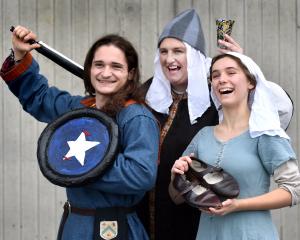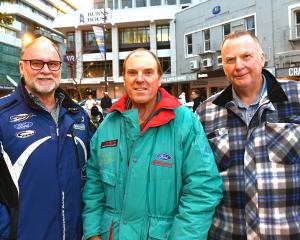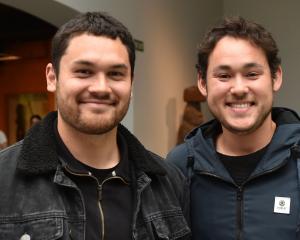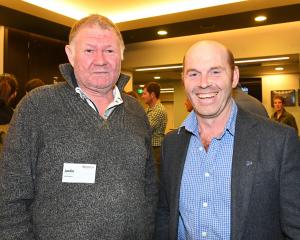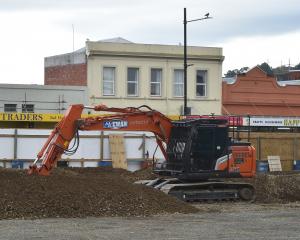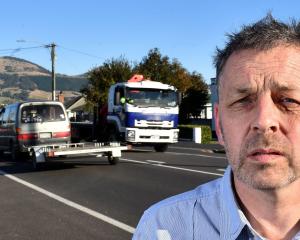Retailers applauding the Dunedin City Council's decision to delay a pedestrian trial in the Octagon say more car parking - not more pavings - is what the central city really needs.
Those contacted by the Otago Daily Times this week welcomed the council's decision to delay any trial, which could have resulted in a pedestrianised area covering the lower Octagon and lower Stuart St.
Councillors on Monday voted to give the idea more thought, as part of wider central city planning work, while pressing ahead with more ''dialogue'' and plans to promote the use of lower Octagon.
The decision prompted a philosophical response from Georgina Hampton, one of the University of Otago students who pushed for the trial.
She told the ODT she was ''initially disappointed'' at the decision, but recognised it was ''so important that changes like this are done right to ensure the best chance of success''.
''Hopefully, some of the changes we will see in the Octagon this summer will convince those who are undecided of how a pedestrian precinct in the CBD could improve vitality and attract people to the CBD.
''I do think the council made the best choice, and I'm looking forward to seeing the improvements this summer.''
However, retailers spoken to also welcomed the council's decision, insisting the focus should be on car parking, not pedestrian paving.
Seriously Twisted owner Linzi Irving said the proposed trial - on top of reduced parking in the area - had risked creating ''a perfect storm'' for already-struggling retailers.
Council intersection changes already funnelled more traffic along George St, and less into the Octagon, while the number of car parks in the area had reduced as more paving was laid, she said.
Pedestrianisation of the Octagon and lower Stuart St ''would be the death knell'' for retail shopping in the area, she believed.
''We already have enough paving in the middle of Dunedin. We don't have enough people and we don't have enough [car] parks.
''I've been watching the Octagon for seven years from my store, and for nine months of the year it's too windy, too cold, too isolated, with too few people.
''Beautifying the Octagon is a different issue, but pedestrianising it ... it just creates wider wind-swept spaces.''
The council should instead increase the provision of car parking in the area, including more free 30-minute spaces, to attract shoppers, she said.
That should include reinstating some of the car parks lost in the lower Octagon over the years, she believed.
Sue Todd, from Sue Todd Antiques and Collectables, agreed, saying Dunedin's population and weather combined meant pedestrianisation would be ''just throwing good money after bad''.
''If you close an area off ... you become a ghost street.''
Instead, the council should look at new lighting and other steps to beautify Stuart St and make the most of the area's ''beautiful'' buildings, she said.
''They could beautify it without messing with it.
''The DCC aren't there to protect retailers - retailers have that responsibility themselves.''
While welcoming the council's decision to step back from the trial, she suspected it would emerge again.
If it did, she would support the installation of bollards in the road, which could be raised to block traffic from entering the lower Octagon after 6pm.
''Everyone's got to make a living in this town ... I have no problem with them closing it off after business hours.''
Perc cafe owner Sarah Henderson predicted pedestrianisation could spell the end for some retailers in the area within six months and it could hurt her business if the area began to look run-down or empty as a result.
Instead, the council should focus on providing more parking, including more free 30-minute spaces, ''not taking more away'', she said.
''When we get rid of all of the rest of the parking, then what do people do? I'll tell you what they do - they shop online, and they don't worry about going into town any more, and then there will be no buzz in Dunedin.
She felt for retailers who were ''freaking out'', due partly to lack of consultation.
''This is their livelihood. This is what they do, and if all of a sudden they've got no parking and they're worried about their business closing down, it becomes a pretty stressful time for them all.''

